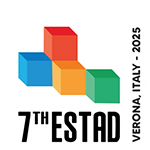Speaker
Description
The use of recycled scrap instead of iron ore is a key strategy for the steel industry to reduce carbon emissions and its reliance on critical raw materials. With the growing demand for scrap, it is becoming increasingly important to handle lower-quality steel scrap effectively. Contamination by unwanted tramp elements, such as copper and tin, can pose significant challenges in producing high-quality steel. Also important is the recovery of valuable alloys by scrap sorting.
To address these issues, the MEDALS project has been initiated to enhance the integrated value chain of scrap-based steel production by developing innovative technologies for scrap sorting, tramp element removal, and recovery and valorization of metal-containing residues. As part of MEDALS, advanced sensor configurations and data-driven models will be implemented to enable automated scrap sorting and separation. Additionally, novel pyrometallurgical methods will be introduced to reduce tramp element content in liquid steel.
Advanced technologies will be also developed to valorize steelmaking residues. Laboratory experiments, supported by thermodynamic and kinetic modeling, will be conducted, and findings will be validated at industrially relevant environment.
Optimizing end-of-life product grouping will be prioritized to maximize alloy recovery while minimizing tramp element contamination. An assessment of improvements linked to better practices will be conducted to evaluate the environmental and economic impact of the proposed solutions. Overall, the initiatives within MEDALS aim to promote sustainable practices in the steel industry and foster a circular economy.
